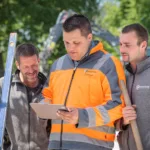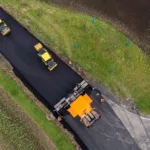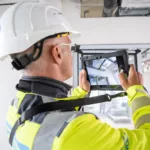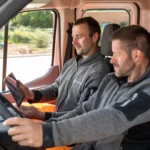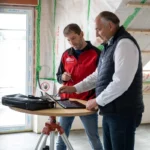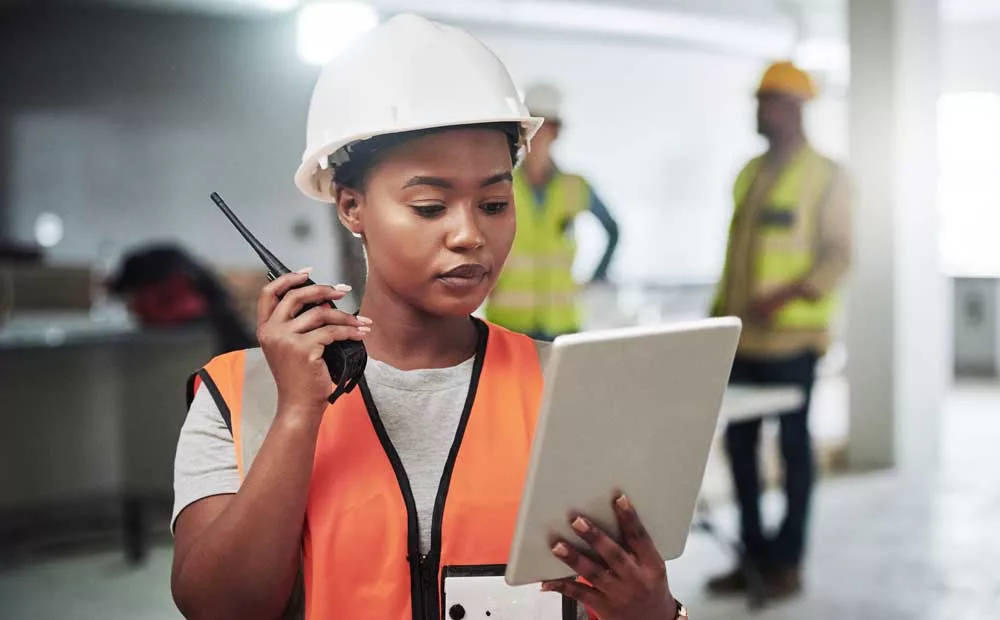
Reservations your data protection officer has about using apps – and what you can do to counter them
Working with digital systems raises questions about data protection. Legislators expect companies to address these issues. Kevin Suske from the Professional Service at 123onsite explains why you don’t have to worry about using apps and special software for construction companies.
Construction companies in the information age
In the information age, construction companies are also increasingly focusing on their own data. Even smaller businesses are increasingly processing their data digitally with the help of special software for the construction industry. The advantage: Apps make it easy to capture information and then process it efficiently in the system. That’s why smartphones are also being used more and more on construction sites. Companies adopting this also have to think about data protection – but this is easier than often feared.
Employers wonder whether they are allowed or want to collect data at all if the GPS location is passed on at the same time.
1. What you need to know about data protection in a GPS acquisition.
One particularly sensitive issue when using apps for Time tracking or for defect management is GPS recording. Employees have concerns about their employer being able to see, for example, where they may log in to work in the morning, when they record their times, or when they clock out. This is regularly a big issue during app implementation. That is why there are technical solutions for this.
It’s all a matter of preference: companies can choose what the app captures
How and which data is collected is up to the company. You can adjust it easily. There are three general options you can choose from:
- The app does not collect GPS data during data entry.
- The app only collects GPS data if the employee allows it. If the GPS is deactivated, employees can then still book their times – even without specifying their location.
- In the third option, the employee can only book times if he has activated the GPS on his construction site smartphone.
So only in the third option there is no restriction at all: workers can then register exclusively in the vicinity of the construction site. The advantage for you: When checking, your site manager does not even have to look at the times to see if they have been entered in the right place. The system itself ensures that employees can only log themselves in at the site area. This is similar to a classic time clock, where it is also only possible to punch in on site. This digital Time tracking significantly saves costs and is more efficient than the traditional paper economy.
Important to know:
The app does not collect data all the time, but always selectively as you enter it.
The availability of GPS data is usually guaranteed, because GPS is usually better available than cellular network. That is why GPS markers are usually retrievable without any problems. Some companies, such as tunnel builders, nevertheless use the app without GPS data because such data is naturally unavailable underground.
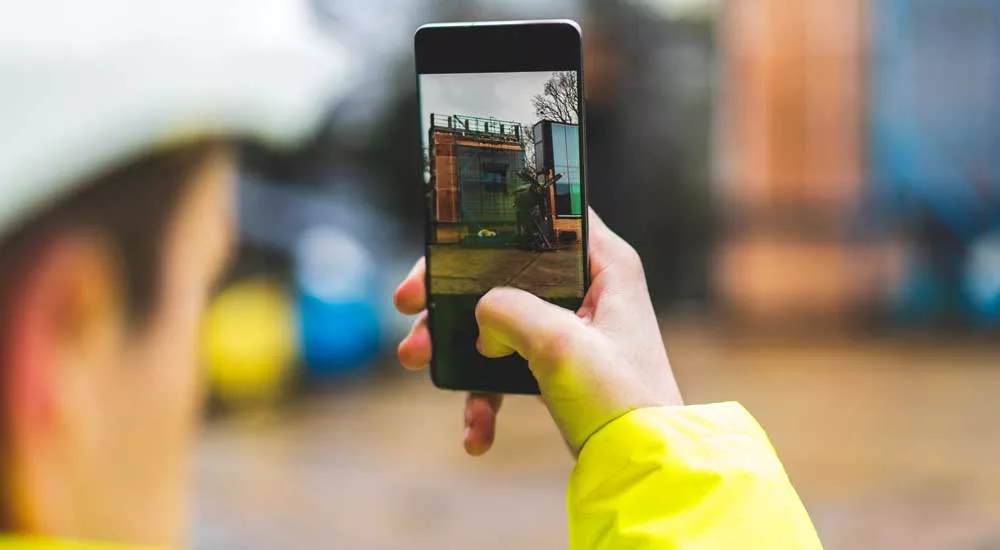
2. 123onsite apps for construction companies collect this data
Your data protection officer will also want to know what personal data is created when an app is used to record data – for example, when employees record their Time tracking expenses and other things such as photo Photo documentation of defects and feed them into the system.
When choosing the right app for site managers and employees, you should not be afraid of the cloud – because your data protection officer won’t have any concerns. When it comes to Time tracking, for example, the apps only act when the employee logs in on their app or enters a time off.
Even the required personal data is kept extremely narrow. The system only needs a few pieces of information so that your employees can work with 123onsite without any problems.
We work according to the principle of data minimization
This means that we do not request unnecessary data. With mandatory fields, too, we only ask for information that is absolutely necessary. These are, for example, the first and last names of the employees as well as their personnel numbers.
3. App usage and the GDPR
In principle, you should always enter into a data processing agreement (DPA) with your software provider in accordance with the EU General Data Protection Regulation (GDPR). This is because every company that has personal data processed by a service provider is obliged to do so. At 123onsite, we generally enter into this agreement with our customers.
Determine data access via rights assignment
Who can view which data is regulated by the assignment of rights. You can set that only employees who work with this data can view it. How do employees actually record data with the app? To identify yourself to the system, the app has a user concept. This means that each employee (or foreman) using the app has their own user access with username and password. This ensures that only authorized users can enter data on their behalf.
All data is fed into the system in encrypted form
The transfer of data from the app to the system is often perceived as insecure. But all data is encrypted during transmission. This means that there is no risk that this communication can be read.
Disclosure to third parties
The system often takes master data from other systems through interfaces so that it does not have to be maintained twice. However, we do not share this master data. The system only shares recorded data, such as recorded hours, employees, or Equipment. In this transfer, however, we work abstractly with numbers: A transfer file might then contain the personnel number, the cost center number, the hours and the date. With this information, it is not identifiable what it is specifically about.
4. 123onsite apps are completely ad-free
That’s important, too: Employees don’t have to be careful when using our apps that they don’t accidentally click a button and sign up for a subscription – as often happens with many apps.
The bottom line: tell your employees what data the app collects
How you organize your workflow, how your employees use the app and what it captures should be well communicated.
Employees should know:
- which personal data is stored in the system,
- which data they should collect and
- what happens to the data.
If employees can only log in with the app in the vicinity of the construction site, you should also communicate this transparently. Then your employees will enjoy working with the app and appreciate the time savings.

